Review: Violet Evergarden
The quiet heart beats loudest when encouraged
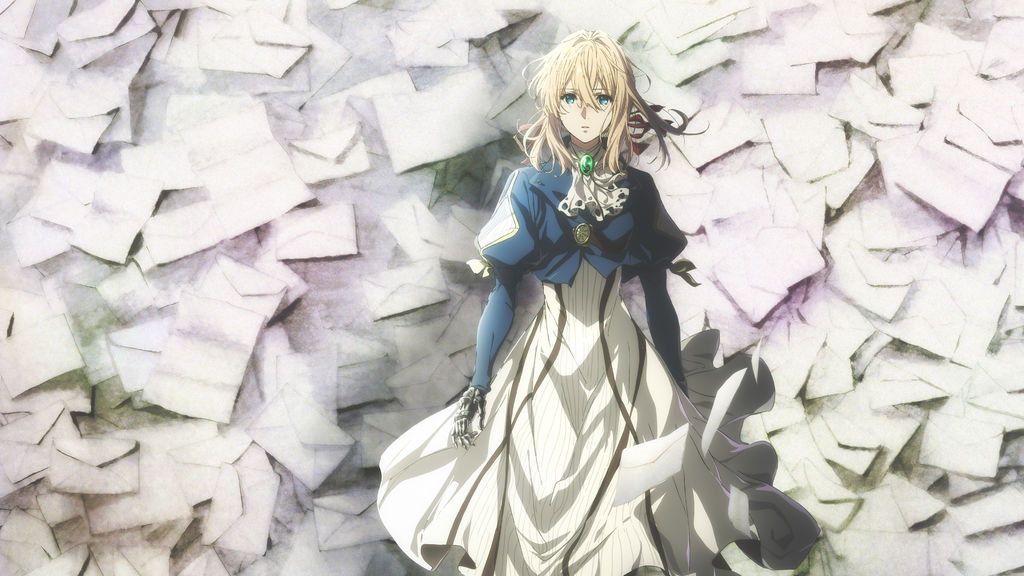
Netflix has been working on their anime co-productions for a while now. While their earliest collaborations were simple acquisitions for streaming (they still do that for evergreen and popular titles), now they licence new titles that will find the biggest draw for the widest audience. Kyoto Animation’s new adaption of the Violet Evergarden light novel series has everything Netflix would want, but is it everything an anime fan could want?
Set in a vaguely Indo-European world (aren’t they all in anime?), the series follows the trials of a young woman, Violet Evergarden, as she comes to terms with the loss of her guardian Gilbert Bougainvillea in the previous war. Serving in the Leidenschaftlich army, they were attacking an enemy stronghold in the final battle of the war when both of them were grievously wounded; Gilbert was killed, and Violet lost both of her arms. When the war ends, she finds herself discharged and given advanced metal prosthetic arms. Violet, who never really understood or was able to express human emotions, is sent to the CH Postal Company to work for one of Gilbert’s old war buddies as an Auto Memory Doll. (Dolls write down people’s letters, words, and requests to others but put an emotional and eloquent flourish to it that most people can’t.) Violet must understand emotions, nuance, and human syntax to work as a doll. But the threads of her earlier life can’t just be forgotten.
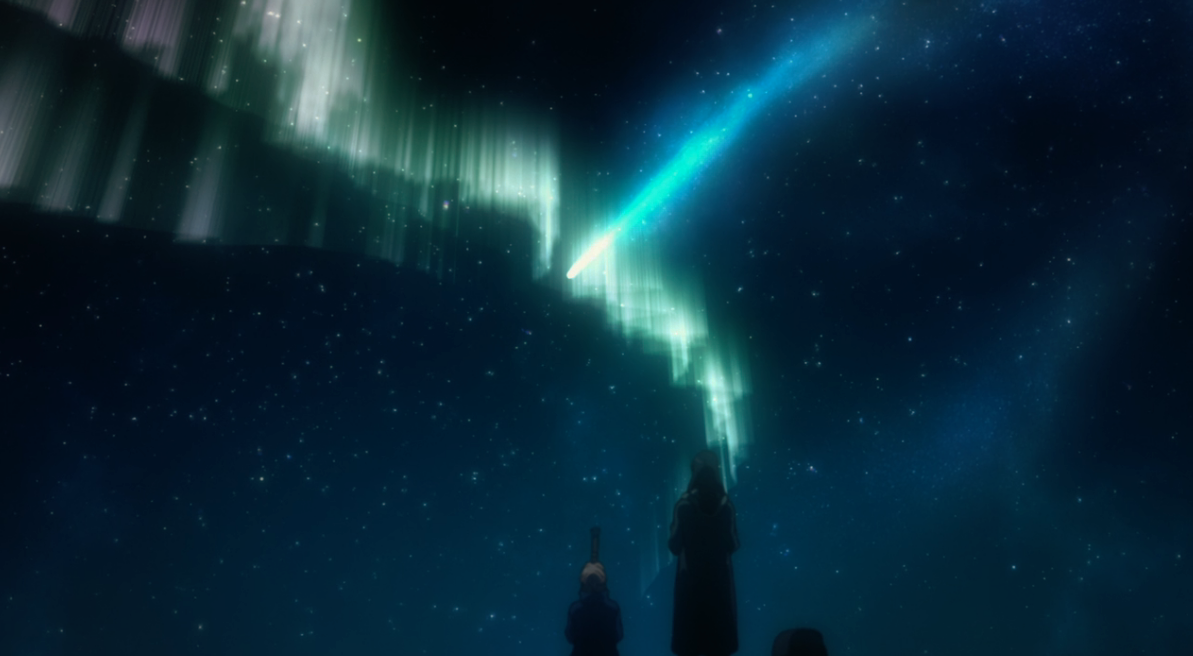
The series, despite being 13 episodes long, works at its plot and characters slowly, and this is an important thing to note when watching the show. Nothing happens without a reason, and nothing goes on that isn’t important. To us, it’s just backstory, new characters, and building emotional structures between us and the main character. But within the construct of the show, Violet needs these more than most anime characters precisely because she can’t understand a lot of it. We see from her flashbacks to life as an Army tool (Violet, for lack of a better word, was a human killing machine) that she just did as she was told by Gilbert and other senior officers because that was her purpose. Anything else was an unknown. So afterwards, Violet tries to make sense of it, and we see, as the show goes on, that she doesn’t not have emotions … she just doesn’t know what they are. Time and again, we see her talking to an distraught or emotional person in a detached manner. While the person is initially upset with her for appearing to be uncaring, they (and we) realise that Violet is trying to figure out the reason for their upset state.
In the latter half of the season, the show turns this around; Violet experiences her own emotions welling up. And only by seeing others in their lowest moments does Violet rise above her own problems to see the truth. Violet Evergarden is a show where the audience goes where the character sees a problem, not where they see a solution. The solution is Violet’s response. It’s curious to watch the other characters rail at her unsuitability to tasks only to find they are no more suitable because of what they themselves have gone through.
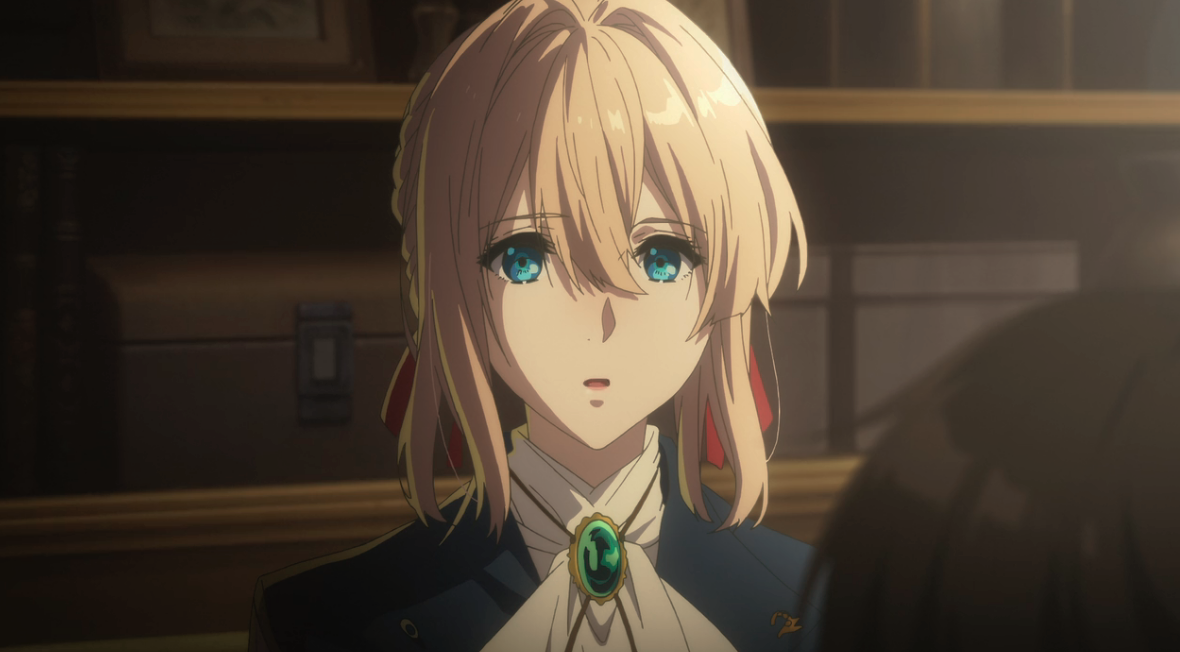
Both Yui Ishikawa and Erika Harlacher work very hard at selling us Violet. Both of them work at her remoteness from others and, as the series progresses, showing a little more emotion. One thing I loved about their performances is that I didn’t get the sense that Violet would be skipping around merrily and having screaming sessions with her co-workers by the end. Her journey sees her answering the questions that arose from her final conversation with Gilbert and nothing more. So as she matures, her character arc is one of redemption and enlightenment, not forgiveness and clarity. The character isn’t going to suddenly know everything, and the voice actors’ performances should, and do, reflect that.
The rest of the cast ranges from the very light (the clients for the most part) to the deeply troubling. Erica and Iris are Violet’s co-workers, and they spend a lot of time trying to figure her out. Of course, they figure her out as we are treated to backstory when Violet travels with them to places that mean something to them. Iris’s is the best backstory, because we see a different culture (can’t explain without spoilers) than the Leidenschaftlich cities and towns. Of the deeply troubling characters, Gilbert’s brother Dietfried hates Violet with an unremitting hostility. He is the one who gave Violet to Gilbert (after she beat his men to a pulp when they tried to rape her) as a mere tool. But when Gilbert cares for and dies to protect Violet, Dietfried suddenly cares about his brother and seeks to blame Violet. While Keith Silverstein does a good job, Hidenobu Kiuchi’s coldness is amazing, and as he progresses, we see layers to his character that go beyond a mere antagonist that acts as the series’ cudgel to Violet.
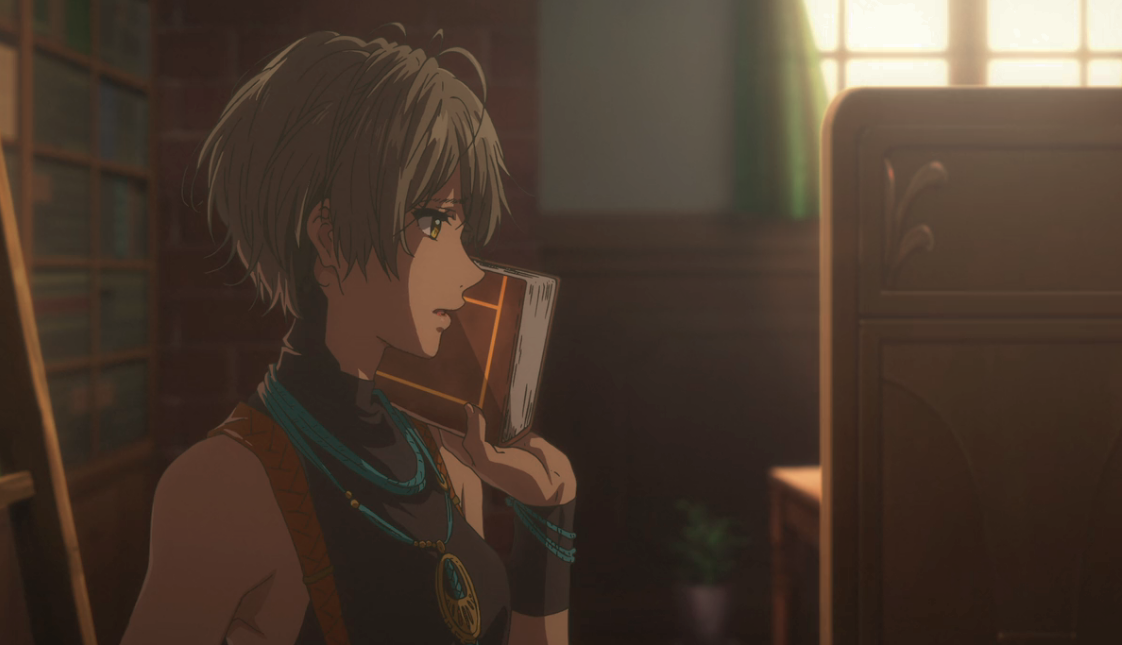
The show’s visuals are very detailed; great care is given to backgrounds, art design, and world building. While the show has a similar aesthetic to Fullmetal Alchemist in its construction of Leidenschaftlich, it does not have the time to build more of the world. That’s a shame, because there are real moments where the audience experiences transcendence from merely consuming the scene. The episode where Violet goes to a mountaintop observatory and library to help with preserving books is a beauty with gorgeous nighttime scenes. The episodes where Violet stays in a city are also insightful; the art department turns inward and shows us ochre-colored doorways and windows as Violet delivers letters to people, or wind sweeping through a clock tower on calm summer days as the sky turns umber from the setting sun.
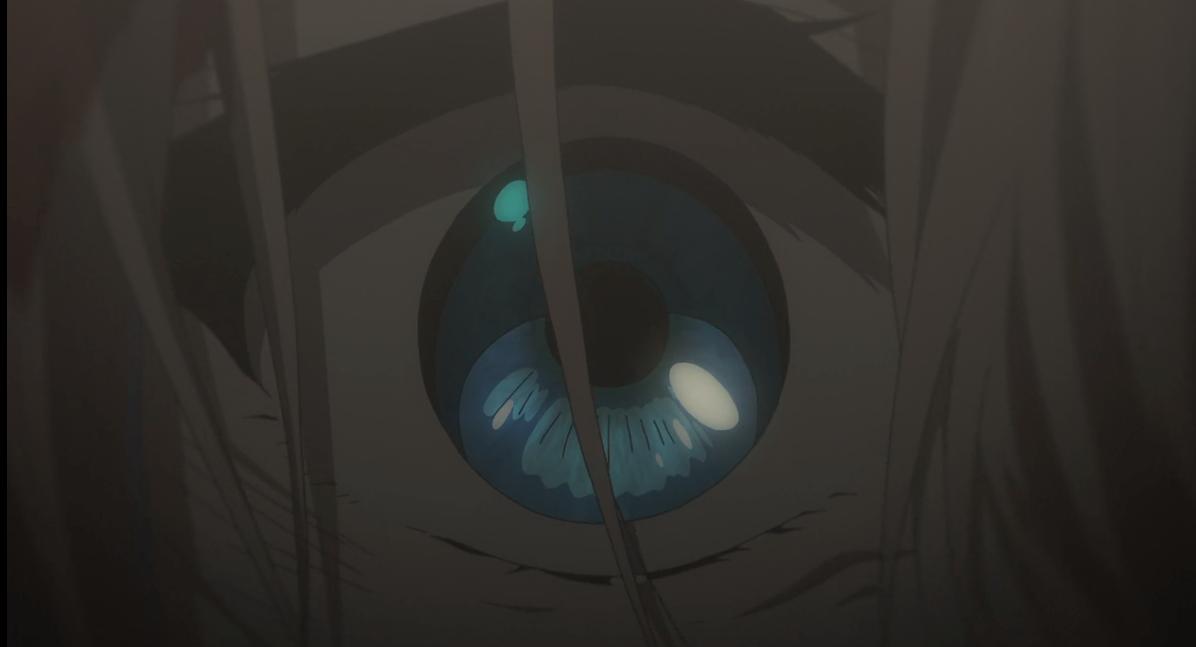
The best series in anime for me are neatly divided into two groups: the ones where you fist pump in the air as your hero wins against impossible odds, and the ones where the show cripples you emotionally without warning. Violet Evergarden falls into the second category. While most of the episodes can be said to be emotionally charged in some way, the one that affected me the most was “A Loved One Will Always Watch Over You.” This story has Violet going to the home of a wealthy woman whose daughter, Ann, is a preteen who constantly looks for attention. Ann’s mother has commissioned the CH Postal Company to write a large number of documents. We don’t know what these are, but we know early on that Ann’s mother is unwell and not going to get better. I guessed at what the documents were, but then the show lulled me into a false notion before the real reason for the commission was revealed at the end. Violet and I both burst into tears when the truth was revealed. That’s the mark of a good show, anime or not, in my book.
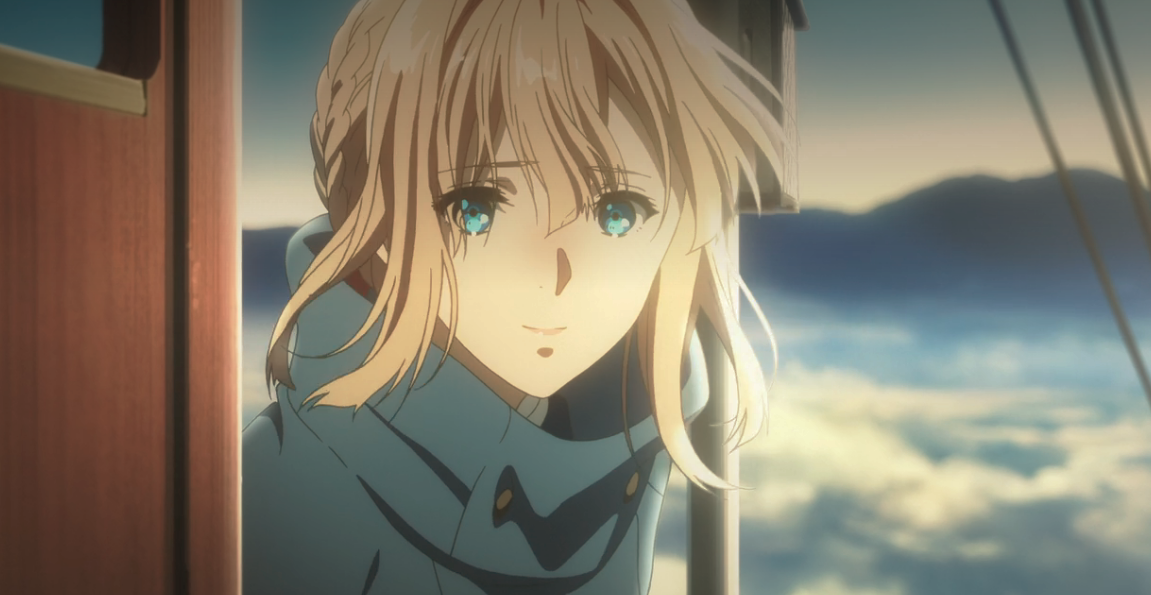
Violet Evergarden is a short, satisfying glimpse into a young woman’s journey from darkness and death into coping with loss in the face of the brightness and chaos of life. It’s sure to have something for everyone.
